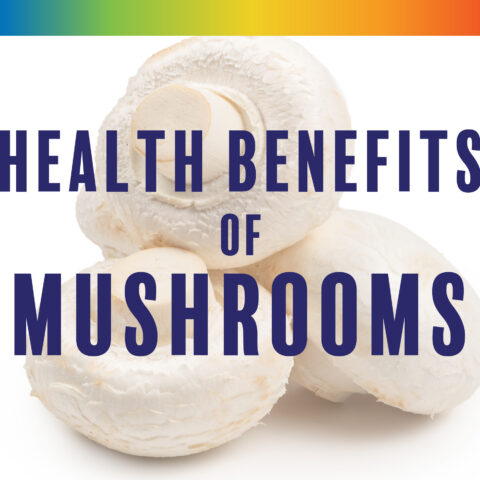Taurine for Cardiovascular Health

Taurine is an amino acid first isolated from ox bile in 1827, earning its name from the Latin word taurus, meaning “bull” or “ox.” This origin also hints at one of taurine’s key benefits: supporting cardiovascular health and enhancing physical vitality; helping consumers feel as “strong as an ox.” While it can be supplemented, there are plenty of Paleo-friendly food sources of taurine.
RELATED: Top 10 Heart-Healthy Paleo Foods
What Is Taurine?
Taurine is a sulfur-containing amino acid that plays a critical role in many physiological functions in the body. It’s highly concentrated in certain tissues including the brain, heart, skeletal muscles, white blood cells, and retina. These tissues need significant amounts of taurine for healthy function. [1]
The body synthesizes taurine from the amino acids methionine and cysteine, primarily in the liver and brain. Unlike other amino acids, taurine isn’t used to build proteins and more amino acids. Instead, it functions in a variety of cellular processes, including being a powerful antioxidant. [2,3]
Taurine is considered a conditionally essential amino acid, meaning the body can produce it in small amounts. However, supplementation (ideally through diet) may be beneficial or even necessary in certain situations. Cardiovascular disease may be one of those situations.
Taurine’s Benefits for Cardiovascular Health
Taurine supports the cardiovascular system through multiple mechanisms that protect the heart and promote overall vascular function. Here’s how taurine may benefit the cardiovascular system.
Protects Heart Cells
Taurine helps protect heart cells by maintaining cell membrane integrity and combating oxidative stress as an antioxidant. It also lowers inflammation in the cardiovascular system, reducing damage to the heart and blood vessels. [4]
Supports Heart Function
Taurine plays a role in muscle contraction and performance, including the heart muscle. It enhances the strength of the heart, enabling it to pump blood more efficiently. It also helps regulate the calcium ion concentration in heart cells, supporting a normal heart rhythm. [5]
Another way taurine helps the heart rhythm is by stabilizing the electrical activity of the heart. This capability is especially important for conditions like atrial fibrillation or ventricular tachycardia. [6]
Regulates Blood Pressure
Taurine helps regulate certain electrolytes in cells, which is essential for maintaining normal blood pressure. It also promotes the relaxation of the blood vessels, improving blood flow and reducing blood pressure. [7]
Reduces Homocysteine Levels
Elevated homocysteine is a known risk factor for cardiovascular disease. [8] The good news is that taurine helps the body metabolize homocysteine, reducing its levels and lowering the risk of related complications. [9]
Protects Against Heart Failure
Taurine has been shown to improve heart muscle function in those with congestive heart failure by reducing the workload on the heart. It also reduces excessive fibrosis (scarring) in the heart, which would otherwise impair its function over time. [10,11]
In a 2017 study, those with heart failure taking 1,500 mg of taurine daily for two weeks had significant improvements in cardiovascular risk factors. Total cholesterol, triglycerides, and C-reactive protein all improved with taurine versus a placebo. [12]
Reduces Risk of Metabolic Syndrome
Metabolic syndrome is a known precursor to cardiovascular disease. A 2024 systematic review and meta-analysis included 25 randomized controlled trials and 1,024 people. Taurine was shown to significantly improve several glycemic markers, reduced blood pressure, and lowered triglycerides. [13]
Since metabolic syndrome increases the risk of cardiovascular conditions, ingesting more taurine may be a helpful preventative measure.
How to Get Taurine in Your Diet
Taurine is present naturally in animal-based foods like meat, seafood, and dairy products. Vegetarian and vegan diets typically have lower taurine content than an omnivorous diet or The Paleo Diet®. Here are some of the best food sources of taurine: [14]
- Beef, particularly organ meats like liver and heart.
- Lamb, especially dark muscle cuts like lamb chops, roast, and ground lamb.
- Fatty fish like salmon, mackerel, tuna, and sardines.
- Shellfish: Scallops, shrimp, mussels, and clams are especially rich in taurine. Be sure to get them from a clean source, and that they’re tested for mercury and other contaminants.
- Poultry: The dark meat of chicken and turkey are also good sources of taurine. Chicken liver is an excellent source.
Ideally, opt for grass-fed, pasture-raised, or wild-caught versions of these animals to maximize taurine and other nutrients. Incorporate organ meats into your diet regularly, as they’re some of the richest sources of taurine. Eating seafood twice a week can also provide a taurine boost alongside a healthy dose of omega-3 fatty acids.
The Paleo Diet is an excellent way of eating to support cardiovascular health. It’s naturally rich in taurine and other nutrients needed for heart health and overall health and fitness. Taurine is known to protect the heart and cardiovascular system in several ways and avoidance of foods rich in taurine may increase the risk of developing cardiovascular conditions. Grass-fed and wild-caught taurine sources are an essential part of the human diet.
References
- Schuller-Levis GB, Park E. Taurine: new implications for an old amino acid. FEMS Microbiology Letters. 2003 Sep;226(2):195–202. Available from: https://pubmed.ncbi.nlm.nih.gov/14553911/
- Surai PF, Earle-Payne K, Kidd MT. Taurine as a Natural Antioxidant: From Direct Antioxidant Effects to Protective Action in Various Toxicological Models. Antioxidants. 2021 Nov 24;10(12):1876. Available from: https://pmc.ncbi.nlm.nih.gov/articles/PMC8698923/
- PubChem. Taurine [Internet]. pubchem.ncbi.nlm.nih.gov. Available from: https://pubchem.ncbi.nlm.nih.gov/compound/Taurine
- Yamauchi-Takihara K, Azuma J, Kishimoto S, Onishi S, Sperelakis N. Taurine prevention of calcium paradox-related damage in cardiac muscle. Its regulatory action on intracellular cation contents. Biochemical pharmacology [Internet]. 1988 Jan;37(13):2651–8. Available from: https://pubmed.ncbi.nlm.nih.gov/3390225/
- Schaffer SW, Ju Jong C, KC R, Azuma J. Physiological roles of taurine in heart and muscle. Journal of Biomedical Science. 2010;17(Suppl 1):S2. Available from: https://pmc.ncbi.nlm.nih.gov/articles/PMC2994395/
- Chazov EI, Malchikova LS, Lipina NV, Asafov GB, Smirnov VN. Taurine and electrical activity of the heart. Circulation research [Internet]. 1974 Sep;35 Suppl 3:11–21. Available from: https://pubmed.ncbi.nlm.nih.gov/4416046/
- Sun Q, Wang B, Li Y, Sun F, Li P, Xia W, et al. Taurine Supplementation Lowers Blood Pressure and Improves Vascular Function in Prehypertension. Hypertension. 2016 Mar;67(3):541–9. Available from: https://www.ahajournals.org/doi/full/10.1161/HYPERTENSIONAHA.115.06624
- Ganguly P, Alam SF. Role of homocysteine in the development of cardiovascular disease. Nutrition Journal [Internet]. 2015 Jan 10;14(1). Available from: https://www.ncbi.nlm.nih.gov/pmc/articles/PMC4326479/
- Zhang Z, Zhao L, Zhou Y, Lu X, Wang Z, Wang J, et al. Taurine ameliorated homocysteine-induced H9C2 cardiomyocyte apoptosis by modulating endoplasmic reticulum stress. Apoptosis. 2017 May 22;22(5):647–61. Available from: https://pubmed.ncbi.nlm.nih.gov/28229251/
- Chih-Chen Tzang, Lin WC, Lin LH, Lin TY, Chang KV, Wu WT, et al. Insights into the cardiovascular benefits of taurine: a systematic review and meta-analysis. Nutrition Journal. 2024 Aug 15;23(1). Available from: https://nutritionj.biomedcentral.com/articles/10.1186/s12937-024-00995-5
- Li-ying Wang. Taurine inhibits myocardial fibrosis via PKCα and iNOS signaling pathways. African Journal of Pharmacy and Pharmacology [Internet]. 2012 Jul 29 [cited 2025 Jan 20];6(28). Available from: https://academicjournals.org/article/article1380881815_Wang%20et%20al.pdf
- Ahmadian M, Roshan VD, Aslani E, Stannard SR. Taurine supplementation has anti-atherogenic and anti-inflammatory effects before and after incremental exercise in heart failure. Therapeutic Advances in Cardiovascular Disease. 2017 June 5;11(7):185–94. Available from: https://pubmed.ncbi.nlm.nih.gov/28580833/
- Chih-Chen Tzang, Chi LY, Lin LH, Lin TY, Chang KV, Wu WT, et al. Taurine reduces the risk for metabolic syndrome: a systematic review and meta-analysis of randomized controlled trials. Nutrition and Diabetes [Internet]. 2024 May 16 [cited 2024 Oct 7];14(1). Available from: https://pubmed.ncbi.nlm.nih.gov/38755142/
- Laidlaw S, Grosvenor M, Kopple, J. The taurine content of common foodstuffs. Journal of Parenteral and Enteral Nutrition [Internet]. 1990 Mar;14(2):183–8. Available from: https://onlinelibrary.wiley.com/doi/abs/10.1177/0148607190014002183
Betsy Schroeder
Betsy does research and writing for a few different websites in the natural health field after taking Masters level courses in Nutrition & Functional Medicine through the University of Western States.
More About The Author




